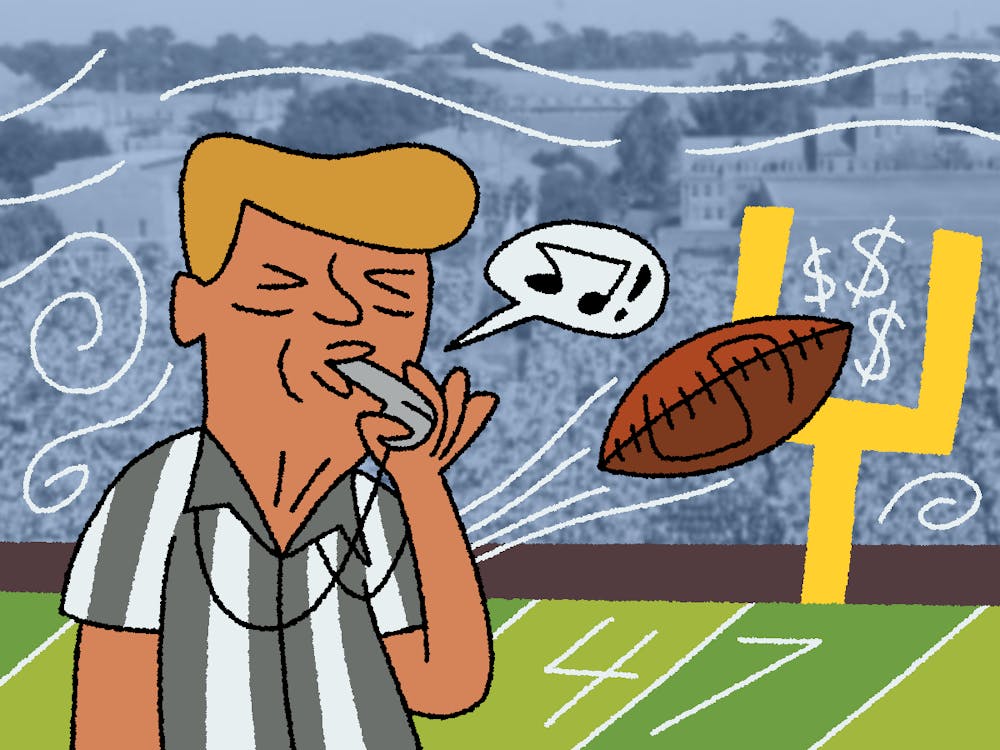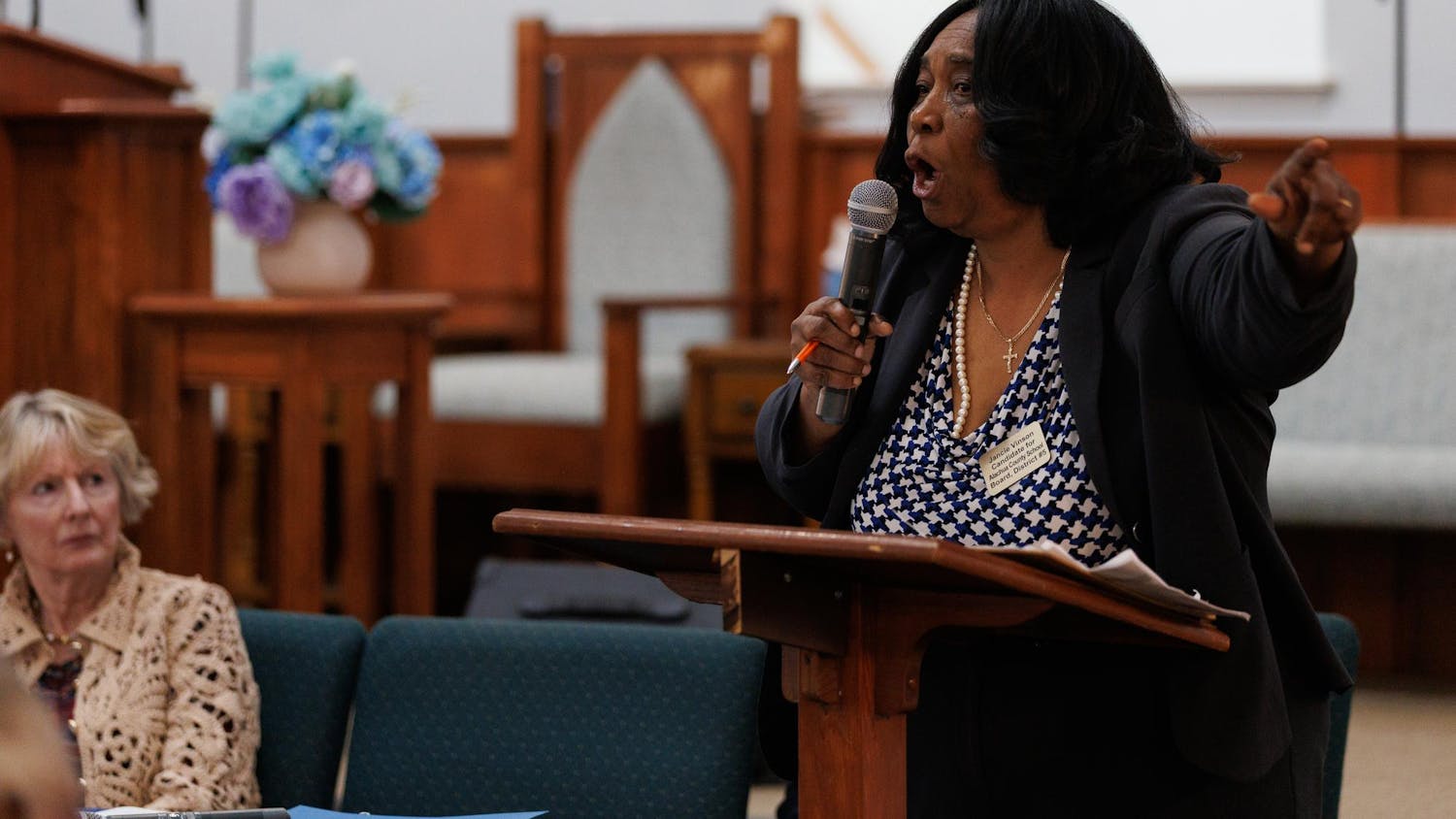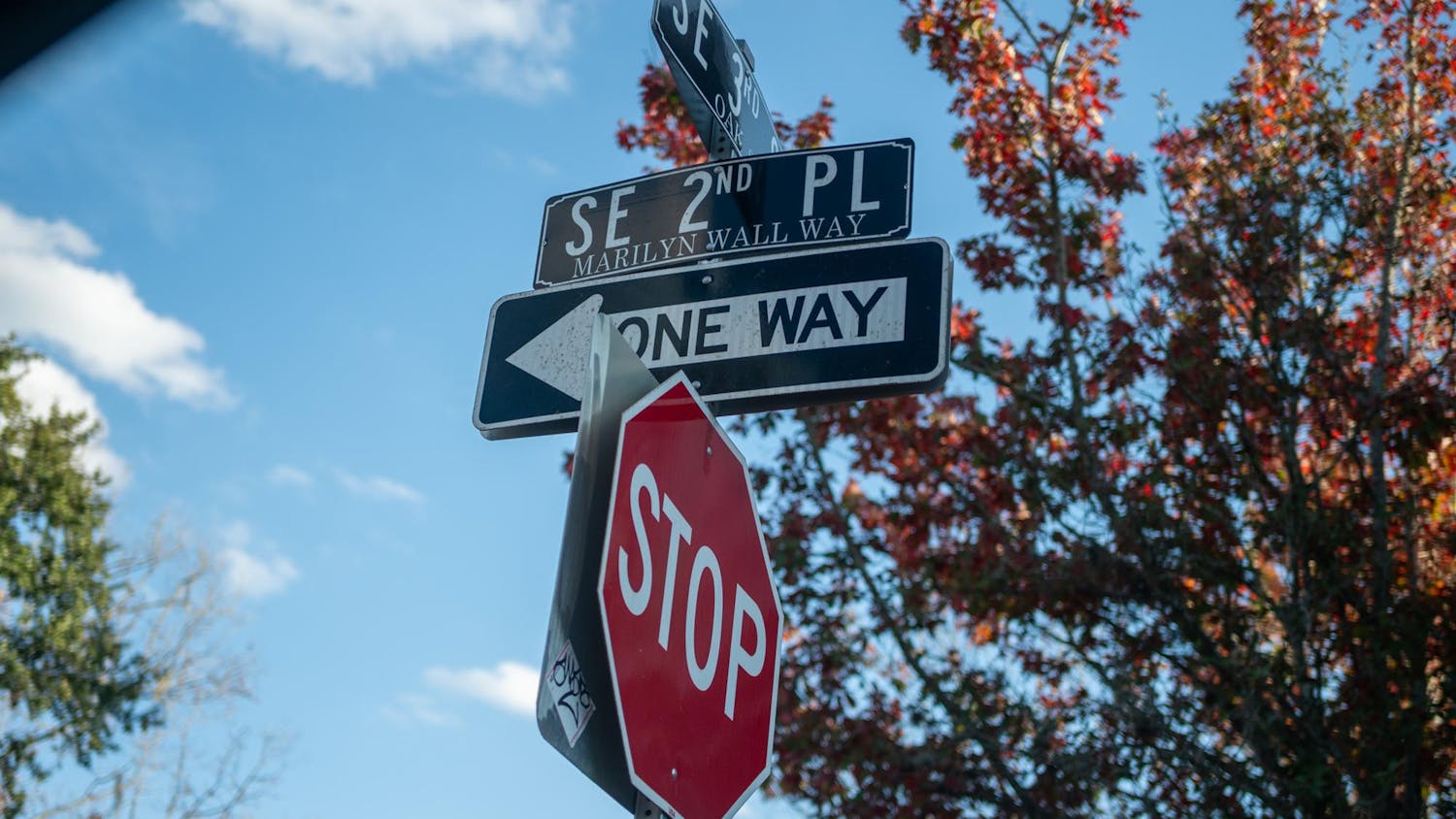Read more from The Alligator's "Ripple Effects" special section here.
President Donald Trump has immersed himself in the legal realm of sports since he took office in January, altering a landscape that has remained mostly unchanged for many years.
Under Trump, two executive orders — one detailing a path forward on pay-for-play and the other outlawing trangender women from competing in women’s sports — provide roadmaps for the administration to change American athletics.
In July, Trump signed an executive order titled “Saving College Sports.” In the first year of his second term, Trump joined a short list of presidents who have signed executive orders related to sports.
According to the administration, the order aims to provide balance and stability. It specifically addresses an effort to preserve women’s and non-revenue sports by requiring an equal number of scholarships for non-revenue sports this year as of the 2024-25 season and bans third party pay-for-play.
This means college athletes are prohibited from being paid through collectives, boosters or third-party entities. The order aims to preserve endorsements and sponsorships at fair market value, meaning it is a standard price for the service between the athlete and the third party.
"A national solution is urgently needed to prevent this situation from deteriorating beyond repair and to protect non-revenue sports, including many women's sports, that comprise the backbone of intercollegiate athletics," Trump wrote.
The order also required the Secretary of Education, in consultation with the Attorney General, the Secretary of Health and Human Services, the Secretary of Education and the Chairman of the Federal Trade Commission to address ongoing changes and action plans in college sports.
Trump’s sports agenda had a diverse range of reactions from those affected, involved or knowledgeable about the college athletics sphere.
"Plain and simple, college athletes don't need Trump's help, and he shouldn't be aiding the NCAA at the expense of athletes," said Steve Berman, one of the co-lead plaintiff attorneys in the House vs. NCAA settlement.
However, others in the sports world, like sportscaster and retired football coach Nick Saban, have remained outspoken in their support of Trump’s decisions and consider it a step in the right direction.
Saban maintains that the executive order was a major, positive effort in creating opportunities for athletes across all sports and shifting the focus toward education and development.
Jason Setchen, an attorney and the president of Athlete Defender, said although the executive order does not carry the same weight as law, it does give some direction on next steps for the country. And, at the very least, Setchen added, the order furthers the call for action.
“The idea that he’s suggesting that something has to happen, everybody would agree with at least that,” he said. “Once he got into some of the weeds on the particulars as to how he would like it to be resolved … some people agreed with it and other people didn’t.”
Setchen said he doesn't believe the executive order will move the needle much, but it gives an idea of where this presidential administration stands. This roadmap is helpful for universities in addition to Congress, which will likely be the ultimate deciding factor in sports reformation.
“Saving College Sports” was Trump’s second executive order in the athletic sphere, following “Keeping Men Out of Women's Sports,” which he signed in February. The order emphasized the importance of abiding by Title IX, a law that prevents sex-based discrimination in sports, by providing equal opportunity for women’s sports. It also banned transgender female athletes from competing in women's sports.
Beginning in 2026, Trump’s tax policies will also have an indirect impact on sports betting, an industry that has skyrocketed after being legalized in 2018.
A general tax deduction could cause gamblers to owe taxes even if they lose more than they win, assuming the order does not get undone prior to the new year.
While this change was not intended to directly impact the sports betting industry, it will undoubtedly have effects. Jason Robins, CEO of DraftKings, a large sports betting platform, has already spoken against the bill and is urging lawmakers to take action.
Rick Evrard, the co-chair of collegiate sports practice at Bond, Schoeneck & King Law Firm, said contextualizing the president’s actions in relation to what people before him have done is an important piece of the examination.
While the changes to sports betting are a separate case, he said, in many ways Trump's involvement has been out of some necessity, coming into office in a time when a change in college athletics was being called for and legislation and lawsuits were in progress.
He said comparative analysis can be deceiving because of what is happening at the time that presidents are serving. During the past 30 years, there hasn't been much need for any president to step in, Evrard said. He said there is a greater need at this point in time because of the changing landscape by virtue of the court decisions that are coming out.
With the House Settlement being approved in June and the surge of Name, Image and Likeness deals after its legalization in 2021, Trump faced a quickly evolving and tension-filled sports landscape. While it may have been possible for Trump to not intervene, Evrard said, he believes presidential action was likely necessary with how robust college sports has become in scope and in numbers.
He said that even more presidential action may need to be taken in the future, specifically in relation to athletes potentially becoming employees of the school and all the complications that would come with it.
“It would be an almost impossible equation for colleges and universities to take on that burden,” Evrard said.
Contact Ava DiCecca at adicecca@alligator.org. Follow her on X @avadicecca24.

Ava is a sophomore sports journalism student and the Spring 2026 sports editor. Previously for The Alligator, she covered volleyball and did sports enterprise. Ava enjoys watching and playing sports in her free time and has been a Boston sports fan all her life. (Brad Marchand is still everything.)






